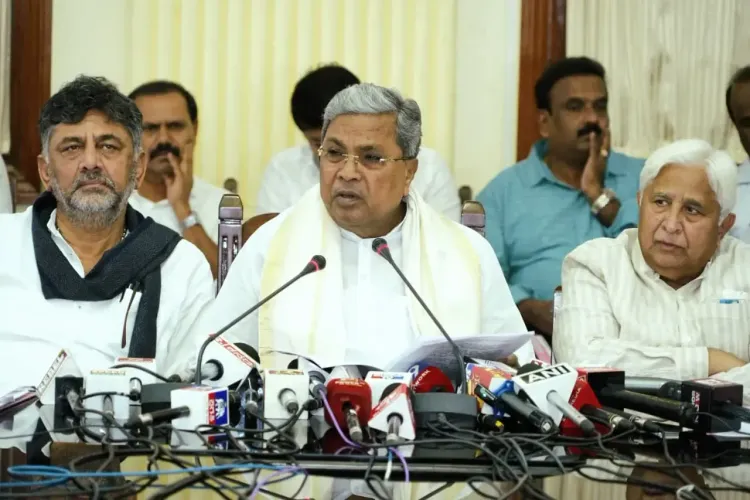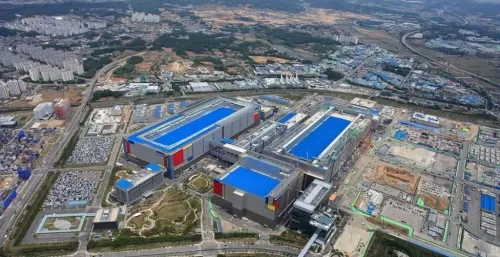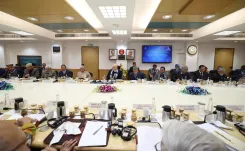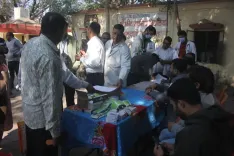What are the implications of the Upper Krishna Project?

Synopsis
Key Takeaways
- Rapid implementation of Upper Krishna Project Phase-3 is prioritized.
- Significant land compensation amounts have been finalized.
- Political tensions with Maharashtra are expected.
- Construction on canals has already commenced.
- The project aims to enhance irrigation for farmers.
Bengaluru, Sep 16 (NationPress) In a significant political move that may ignite tensions between Maharashtra and Karnataka, the Siddaramaiah government announced on Tuesday a momentous decision to prioritize the swift execution of the Upper Krishna Project (UKP) Phase-3 and has finalized the compensation amounts for land acquisition.
Chief Minister Siddaramaiah revealed this information at a press conference held in the Vidhana Soudha Assembly hall following a special Cabinet meeting focused on the Upper Krishna Project.
"As part of Upper Krishna Project Phase 3, and in compliance with the court’s ruling, permission has been granted to elevate the Alamatti Reservoir from 519.6 meters to 524.256 meters," Chief Minister Siddaramaiah stated.
This announcement comes in the wake of Maharashtra's Chief Minister Devendra Fadnavis threatening to approach the Supreme Court should Karnataka raise the height of the Alamatti Dam.
CM Siddaramaiah further noted that raising the dam’s height could inundate approximately 75,000 acres of land due to the backwaters of Alamatti, potentially providing irrigation to around 5.94 lakh hectares (approximately 14 to 15 lakh acres) of land. UKP Phase 3 represents a vast irrigation initiative designed to supply water to farmers’ fields, enhancing their quality of life.
“The Congress government is committed to its promises. We have made the rapid execution of the UKP Phase 3 project a priority, and this historic decision could usher in prosperity for the state,” asserted CM Siddaramaiah.
During the special meeting on Tuesday, discussions included farmers, agricultural organizations, concerned legislators, and ministers, resulting in crucial decisions regarding the project. "The Cabinet has resolved to provide compensation of Rs 40 lakh per acre for irrigated lands acquired by the government, and Rs 30 lakh per acre for drylands," CM Siddaramaiah explained.
"Around 51,837 acres of land is necessary for canal construction. Out of this, 23,631 acres have already been secured and construction has commenced. The Cabinet has decided on compensation rates of Rs 25 lakh per acre for drylands and Rs 30 lakh per acre for irrigated land acquired for canal development. Farmers losing land for canal projects will benefit from this initiative," CM Siddaramaiah added.
"We aim to disburse compensation for the acquired land within three financial years. Farmers are open to donating land for this impactful project, which will serve the people of our state. This is a landmark decision. In 2023, under the previous BJP government, the compensation rates were insufficient, leading to no farmer agreeing to part with their land, which delayed project progress,” remarked CM Siddaramaiah.
Earlier, a meeting in Belagavi involving North Karnataka legislators and farmer representatives discussed a one-time Consent Award, but compensation amounts had yet to be established.
“The Congress government consistently follows through on its commitments. We prioritize the swift execution of schemes; however, the Centre has yet to issue the required notification for this project. Numerous meetings have been held with the Centre to expedite this process,” CM Siddaramaiah criticized.
When asked about the financial implications of compensating farmers, Deputy Chief Minister D.K. Shivakumar revealed that the project will require 1,33,867 acres of land, with 75,563 acres expected to be submerged, and 51,837 acres necessary for canal construction.
"For rehabilitation and resettlement, we need 6,469 acres. Approximately 20 villages and some town wards will be affected by submersion, and a historic decision has been made to compensate for a total of 1,33,867 acres. This will incur an annual expenditure of around Rs 15,000 crore to Rs 20,000 crore. The overall project cost is projected to be about Rs 70,000 crore," Deputy Chief Minister Shivakumar stated.
Construction on the canals has already started, and there should be no issues arising due to the Centre's notification, he confirmed.
Present at the press conference were Law and Tourism Minister H.K. Patil and Excise Minister R.B. Timmapur.










